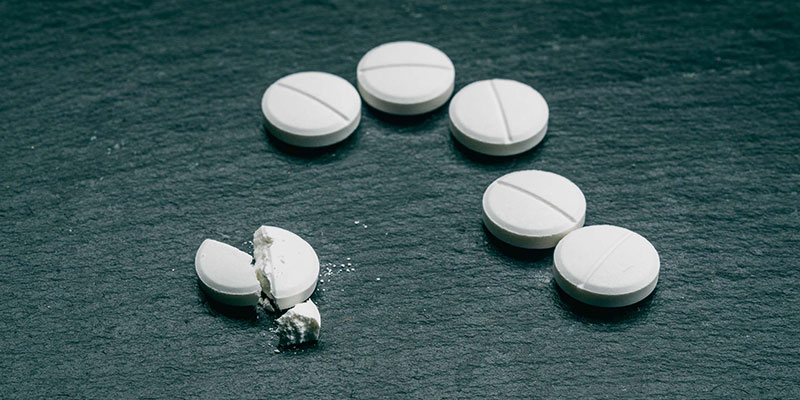The Health and Safety Executive (HSE) has issued a fresh warning over ecstasy use, following reports of ‘super-strength’ MDMA sweeping Europe.
According to an update published on the HSE’s drug information service, drugs.ie, rising numbers of MDMA-related hospital admissions and deaths in some countries have been attributed to a higher concentration of MDMA in illegally-manufactured ecstasy (MDMA) pills.
EU data indicates that these pills now contain higher levels of the drug compared to previous years.
For example, 10 years ago, ecstasy pills typically contained 60-90mg of MDMA. However, some services in Europe have identified pills containing two- to- three times the average adult dose of MDMA, greatly increasing the risk of adverse effects including fatal and non-fatal overdoses.
Data recorded for drug-related deaths in Ireland shows that there was a total of 89 deaths attributed to MDMA between 2008 and 2017.
What is ecstasy (MDMA)?
Methylenedioxy-methamphetamine (MDMA) – also known as ecstasy or the street names ‘E’, ‘XTC’, and ‘Disco Burgers’ – is a manufactured stimulant and psychedelic drug that produces energising effects and can make a person feel ‘loved-up’ and alert.
However, these effects vary from person to person, with some people also experiencing anxiety, panic, and paranoia.
Ecstasy (MDMA) is typically ingested in pill form but can also be crushed and snorted. When sold as a powder, MDMA is either snorted or dabbed onto the gums.
It is widely known as a ‘party drug’ and used recreationally at festivals and clubs, but can be extremely dangerous, as illegally-manufactured ecstasy often contains other substances including methamphetamine, ketamine, cocaine, cathinones (synthetic stimulants) and caffeine.
Physical side effects of ecstasy can vary depending on several factors including how the drug is ingested, how often it is used, and the metabolism and weight of the person taking it.
However, common side effects can include dilated pupils, tightening of the jaw muscles (gurning), raised body temperature, nausea, increased heart rate, tingling sensations, overheating and dehydration.
MDMA and its related compounds were added to the Misuse of Drugs Act as Schedule 1 controlled substances in 1987.
This means that the import, export, production, possession, sale, or supply of ecstasy (MDMA) is illegal in Ireland.
Learn more about ecstasy (MDMA)
What happens in your body when you take drugs?
When a person consumes drugs, they are broken down by the liver, and a proportion of the drug and its metabolites are released into the bloodstream.
Some of the drug and its metabolites can then be detected in the body in different ways including via urine, saliva, hair, and nails.
In the case of hair and nails, a proportion of the drug and its metabolites travel to the blood vessels in the scalp and nail bed.
Substances then become trapped in the hair shaft (medulla) and the keratin fibres of the nails, remaining in hair and nails as they grow, and making it possible to determine whether someone has consumed drugs, using hair and/or nail testing.
Where can I buy a drug test?
AlphaBiolabs is one of Ireland’s leading providers of laboratory testing services for members of the public, the legal profession and businesses.
Our accredited laboratory can test a variety of samples for the presence of drugs and their metabolites, including urine, oral fluid, hair, and nails.
Here are a few examples of who might need a drug test:
- Private individuals who require a legally-instructed drug test for an official matter (e.g. custody or divorce proceedings, industrial tribunals or other legal issues)
- Family law professionals and social workers handling child welfare and custody disputes
- Businesses looking for workplace drug testing
To discuss your drug testing requirements or to request a quote, call our Customer Services team on 01 402 9466 or email info@alphabiolabs.ie.

Drug testing from AlphaBiolabs
Explore our drug testing services for members of the public, the legal profession and businesses.
 0140 29466
0140 29466 info@alphabiolabs.ie
info@alphabiolabs.ie 0 Items
0 Items
